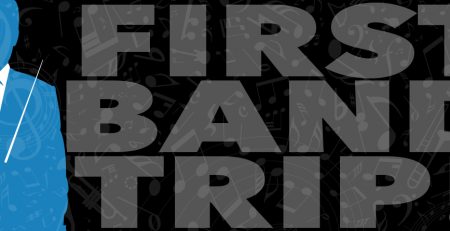Mental Health Benefits of Music Performance
It’s common knowledge that music has therapeutic benefits for both the musician and the listener. You don’t have to be a professional or make a living from music. You don’t even need a big audience. The simple act of making music has been shown to be helpful to our minds, bodies and our mental health. Read below to learn more about the mental health benefits of music performance.

Building Confidence and Competence
Demonstrable benefits accrue when you pursue music. Confidence and self-esteem are the natural results of learning to use a musical instrument. As the core competencies of music sink into long-term memory, uniting fine motor control with sensitive hearing and a powerful brain that synthesizes the various inputs and reacts to them in real time, it becomes easier and easier to carry out the basic routines of music production.
Some studies find that the amount of effort required to play the same song decreases by as much as 20% and, of course the song itself grows immeasurably richer and more meaningful as you gain more control over it. Confidence is a natural result of competence; as you hear the song grow better as you practice, you reach the conclusion that your practicing has been worth it. There is no need to convince yourself of the possibility of improvement when your own senses provide irrefutable proof of actual improvement. The abilities to synchronize and communicate with other band members also bring with them tremendous benefits; if you can learn enough about other people to play in both rhythm and harmony, you’ll generally find these insights useful in other areas of life. There are excellent reasons why so many people remember their time in high school band or orchestra as some of the formative social experiences of their lives.

Social Synchronization and Music Performance
Research has found that the act of achieving musical synchronization with other people — producing music that is rhythmically and harmonically in relationship to the music produced by other people — does more than increase the natural feeling of competence that comes from carrying out a difficult task well. Synchronization appears to cause positive social feelings for those involved, even if the musicians are not visible to each other while playing. Hormones and brain chemicals associated with socialization such as endorphins and oxytocin are released during the act of musical performance bringing well-known benefits of positive feelings and fellowship.

Scientific Proof of Beneficial Effects of Music
What’s more, the advancing frontiers of science have given us some deeper insight into how and why music is good for mental health. Advanced diagnostics and rapidly improving scientific data have allowed scientists and musicologists to begin to speculate about why music is so effective for improving mental health.
For example, recent research has shown the relationship between the vagus nerve and the sympathetic system of the human nervous system, and why this has direct effects on your enjoyment of music as a listener. It seems a little bit complicated but all the best science usually is. As you know, there are a lot of nerves in your body and one of the biggest ones is also one of the oldest; the vagus nerve.
The vagus nerve travels through most of your body, uniting practically every internal organ. It goes through the entire digestive tract, visits most of the torso and then finds its home in the brain. Evolutionarily speaking, the vagus nerve is one of the earliest and most important nerves. When it reaches the brain, it interacts with something called the sympathetic nervous system which is localized almost entirely inside the brain.
Everything about the brain is complicated and scientists know far less about it than we would like, but it‘s reasonable to say that one of the main functions of the sympathetic nervous system is as a sort of emergency override for the vagus nerve at times of stress or difficulty.
After all, the vagus nerve controls the digestion of food, so in moments of panic or danger it is helpful to the body to turn off the vagus nerve and clear the decks for action. The enormous and extensive functions of the vagus nerve, rooted in digestion but deeply intertwined with our basic feelings of well-being, are therefore suspended when the sympathetic nervous system is active, and vice versa.

Now, in our high-stress modern world, one can easily surmise which of those two systems causes more upset and difficulty in the average person’s life. The sympathetic nervous system is vastly overpowered for the modern world.
We are surrounded with so much stimulus, so many flashing lights and delicious, but bad for you treats and complex moral quandaries, that the sympathetic nervous system is on high alert from the moment we wake to the alarm to the moment that we doom-scroll ourselves to sleep. This messes with the vagus nerve, which troubles our digestion and our physical sense of well-being which interrupts and irritates our ability to feel comfortable and at ease in our lives.
But here’s the thing, and this may be a clue as to why music makes people feel so good. The vagus nerve and the sympathetic nervous system cannot be activated at the same time. It’s either one or the other. The vagus nerve, as it is enormously larger and spread out through the entire body, is naturally far more receptive to the broad, deep vibrations of bass music. When the vagus nerve is stimulated, educated and entertained by carefully produced and delivered bass music, it naturally causes the sympathetic nervous system to relax.
This means that the overstimulated, paranoiac and totally stressed out portion of our mind gets to take a few minutes off when we are in the presence of good music. The fight or flight response is temporarily suspended and we can exist in the moment. Now this is only one of dozens of beneficial health effects suggested by scientists studying music and musicians. This is only the beginning. But what a promising beginning it is.
The benefits of musical performance to mental health and emotional literacy simply cannot be overstated. Many have speculated that the sonic abstractions of music are the best method humanity has yet discovered to transmit our emotional state and to reinforce the same.

One thing we know for sure; the creative outlet of making music helps people to express their emotions in a positive, constructive way. Joining a band, singing in a choir or any other form of playing music with others can be instrumental in managing your mental health, reducing stress, building confidence and reducing problems like addiction. Those who seek empathy, serenity and peace of mind could scarcely do better than to take up the pursuit of music.
Sources
sciencedirect.com – The Effect of Playing Music on the Confidence Level
teachthought.com – What Are The Neurological Benefits Of Practice?
ncbi.nlm.nih.gov – Music and Autonomic Nervous System (Dys)function
greatergood.berkeley.edu – Four Ways Music Strengthens Social Bonds
ncbi.nlm.nih.gov – Vagus Nerve as Modulator of the Brain–Gut Axis in Psychiatric and Inflammatory Disorders
merriam-webster.com – On ‘Doomsurfing’ and ‘Doomscrolling’












